Coordination, Assistance and Advice
Szöveg: László Szűcs | 2017. október 27. 9:00Col. (MD) Dr. Zoltán Vekerdi, Head of the Defence Health Care Institute functioning under the HDF Medical Centre Directorate for Defence Health Issues will serve in a NATO position in Kosovo for one year starting from 16 October. He will be tasked with coordinating and professionally mentoring the expected transformation of the medical support system for troops serving with the KFOR peacekeeping mission in Kosovo.
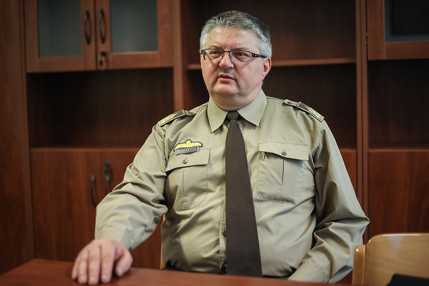
Col. (MD) Dr. Zoltán Vekerdi applied for and has been chosen to fill a special NATO position. In the next one year, the Head of the Defence Health Care Institute functioning under the HDF Medical Centre Directorate for Defence Health Issues – who recently earned a PhD degree in military science at the National University of Public Service – will be assisting the transformation of the medical support system for troops serving with the NATO-led KFOR mission in Kosovo.
Continuing need for a medical support system like the present one
“To understand the essence of this position, we must begin with a flashback. Early last year, the KFOR Troop Contributing Nation Germany announced that, as of 31 December 2017, it would withdraw the German-run, highest-level in-theatre field hospital (NATO code Role-3), which is located in the area operations in Prizren, southern Kosovo", the colonel told us, adding that this announcement was followed by a long process during which the experts were investigating the type of field hospital support that would be needed thereafter in the area of operations. “It was clear that the international force in Kosovo would still need a medical support system similar to the present one. At the same time, at the force generation conferences, no nation offered to deploy such an in-theatre capability and operate it from 2018 onwards", Dr. Zoltán Vekerdi said.
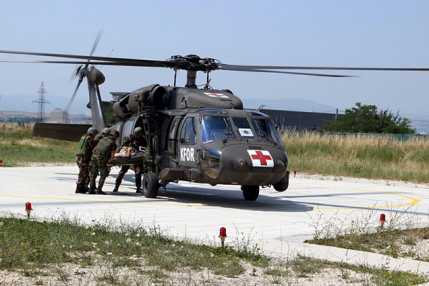
The colonel pointed out that the next step was to investigate whether the civil health care system of Kosovo could be used for the purposes of KFOR medical support. According to an analysis, this is only partially possible, because even taking into account the progress and results of recent years, the patient load on the local support system poses minor or major risks in several areas, especially in the surgical and emergency medical assistance services. In what followed, the subject matter experts investigated the possibility whether all NATO member countries could jointly fund the outsourcing of this capability to commercial providers. “It turned out that this was not a viable alternative either, so we had to find another solution in the system: the KFOR Troop Contributing Nations provide common funding for the outsourcing of this capability to a commercial provider", the colonel emphasized.
Following this decision, the Luxembourg-based NATO Support and Procurement Agency (NSPA) was tasked with managing the procurement process. “As a result of the bidding process, the contract was awarded to a British company, whose employees have already started building the hospital in Kosovo. The NSPA concluded that there is a need for experts on the spot who monitor, oversee and assist with advice the establishment, commissioning and operation of this capability. Two vacancies were advertised, an engineering and a medical position. The latter was NATO Consultant – Senior Medical Advisor. With permission and support from my superiors, I applied for that position, and the agency found that me with my credentials eligible to assume this responsibility,", Dr. Zoltán Vekerdi said, adding that he will fill this position for one year starting from 16 October. During this time – as he has changed employer in legal terms, so he will be employed by NATO instead of the Hungarian Defence Forces – he is to take an unpaid leave as Head of the Defence Health Institute.
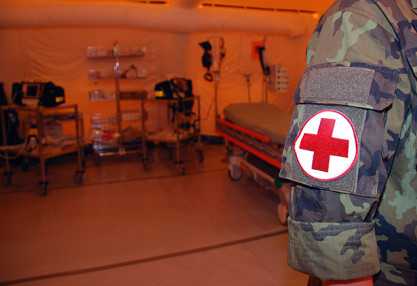
Construction of new hospital starts in Pristina
The colonel also told us that the new hospital, which is to reach full operational capability (FOC) by 1 January next year, will provide a narrower range of medical services than the current German field hospital. “The KFOR Troop Contributing Nations have made a risk analysis with the result that it would be unnecessary and too expensive to purchase a full-scale hospital service. For this reason, – in view of the improving security situation in Kosovo, which enabled a significant reduction of KFOR troop levels in recent years – they come to the decision that KFOR soldiers will use some services, for example, outpatient care, through the local health care system, drawing on the network of specialized surgeries and outpatient care. In fact, the new hospital will be tasked with trauma management and emergency medical assistance. This is called a Medical Treatment Facility (MTF) with initial surgery response capability, (NATO code: Role-2 Basic), Dr. Zoltán Vekerdi told us.
The colonel emphasized that the selection of location was another important issue in establishing the hospital. Its area must be easy to access and suitable for an adjacent helicopter apron available on a 24/7 basis, besides being accessible by road, having adequate infrastructure and being easy to defend. This is how Camp Film City, the KFOR HQ in Pristina was selected, where the construction of the containerized new field hospital is already under way. “Based on currently available information, it is highly likely that this hospital can open its gates to KFOR military personnel on 1st January 2018. Of course, there are some factors that may hinder this project. One of these is the widely known vagaries of the weather during late autumn and winter in Kosovo. The sudden onset of a hard frost or a heavy snowfall can slow down the construction works. We are prepared for those cases too, as we have reached an agreement with Bundeswehr – the German military running the current field hospital – to the effect that if it seems that a delay is expected, the current facility will not be closed down on the last day of the year, but will continue operating at reduced capacity for some weeks to provide medical support for KFOR troops", Dr. Zoltán Vekerdi told us.
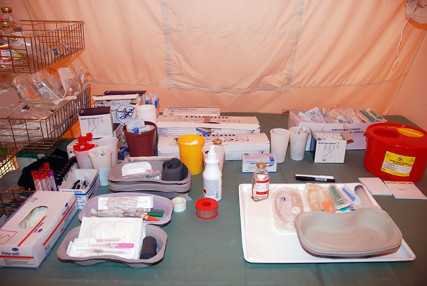
He pointed out that the new contracted management will also be responsible for staffing the hospital. As KFOR has already purchased a type of medical service that is similar to the projected one but operates at a lower, Role-1 level – where some of the doctors and nurses employed after applying come from neighbour countries – a similar solution will probably be found in the case of the Role-2 Basic MTF. “It is important to make the KFOR Troop Contributing Nations understand that this is not a military capability but a service purchased under a contract. That is, COMKFOR does not freely dispose of this capability, and the nations cannot require any kind of services, only those provided under the terms of the contract. All other requirements must be subject to prior consultation, also because of the extra costs involved", Dr. Zoltán Vekerdi said.
The colonel also told us that the Hungarian military medical personnel currently serving at the Prizren field hospital are expected to return to Hungary starting from January. “The present hospital, among other things, provides public health, epidemiological and laboratory background support for the entire area of operations. The Hungarian experts are working in this background laboratory. The system of services of the new hospital does not include the laboratory, but the Germans are responsible for the provision of in-theatre public health and epidemiological support, in a form different from the present one. Starting from next January, they will only send sampling units to the theatre. The collected samples will be analysed in Germany and intervention forces will deploy to the area of operations only if the epidemiological situation requires that. For this reason, the Germans will probably request the Hungarian experts’ assistance elsewhere than in Kosovo", Dr. Zoltán Vekerdi emphasized.
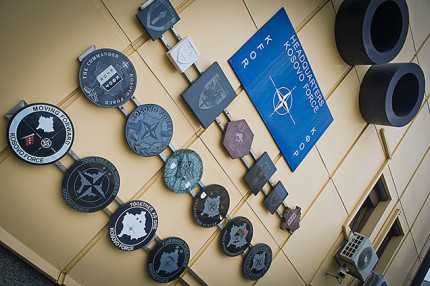
The ninth tour
The Hungarian expert is already a soldier with considerable experience in foreign missions, as the current one will be his ninth tour of duty abroad. He already served in Kosovo on one occasion – as chief physician of the HDF KFOR Contingent for three months in 2016 – but besides, he completed multiple tours in Afghanistan and the Sinai, as well as one tour in Iraq, one in Cyprus and one in the Central African Republic. Furthermore, he also served in the NATO International Military Staff (IMS) in Brussels for four years.
“What is it that gives me motivation even before the ninth tour in a foreign mission? I have always followed the principle of striving to be a leader who is familiar with the medical support system not just through a desk job, but who lives in it and actively shapes it instead of mere participation. For having insider’s knowledge of the system is the only way I can effectively help my colleagues’ work. Besides, it is also my own internal need to be present in a given area of operations time after time. The current tour in Kosovo will give us good opportunities to utilise, in our future work, the lessons to be learned here, as the Hungarian Defence Forces also aim at generating a deployable field hospital capability", Col. (MD) Dr. Zoltán Vekerdi emphasized, adding that the Zrínyi 2026 National Defence and Armed Forces Development Program provides the Hungarian Defence Forces with an opportunity to strengthen their capabilities in several areas, including that of medical support.
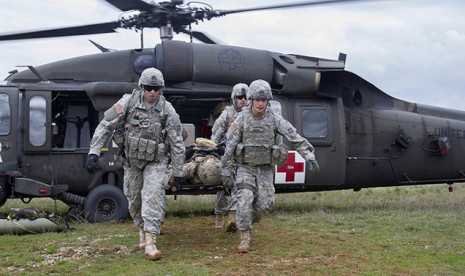
Photos by Veronika Dévényi and archives